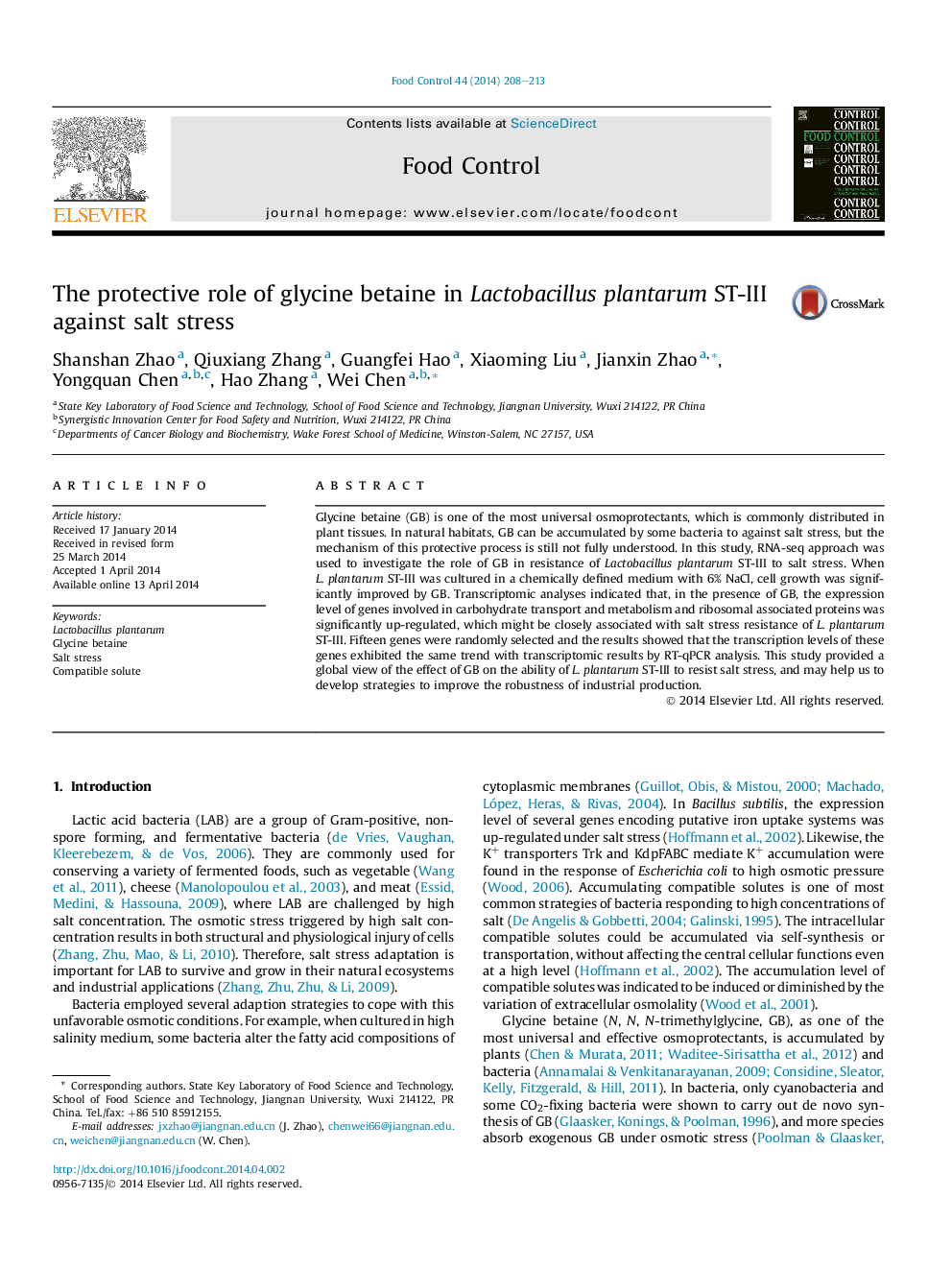| کد مقاله | کد نشریه | سال انتشار | مقاله انگلیسی | نسخه تمام متن |
|---|---|---|---|---|
| 4559356 | 1628418 | 2014 | 6 صفحه PDF | دانلود رایگان |

• Glycine betaine (GB) enhanced the salt stress tolerance of Lactobacillus plantarum ST-III.
• GB changed the expression of gene involved in carbohydrate transport and metabolism.
• GB changed the expression of gene involved in ribosomal structure and biogenesis.
Glycine betaine (GB) is one of the most universal osmoprotectants, which is commonly distributed in plant tissues. In natural habitats, GB can be accumulated by some bacteria to against salt stress, but the mechanism of this protective process is still not fully understood. In this study, RNA-seq approach was used to investigate the role of GB in resistance of Lactobacillus plantarum ST-III to salt stress. When L. plantarum ST-III was cultured in a chemically defined medium with 6% NaCl, cell growth was significantly improved by GB. Transcriptomic analyses indicated that, in the presence of GB, the expression level of genes involved in carbohydrate transport and metabolism and ribosomal associated proteins was significantly up-regulated, which might be closely associated with salt stress resistance of L. plantarum ST-III. Fifteen genes were randomly selected and the results showed that the transcription levels of these genes exhibited the same trend with transcriptomic results by RT-qPCR analysis. This study provided a global view of the effect of GB on the ability of L. plantarum ST-III to resist salt stress, and may help us to develop strategies to improve the robustness of industrial production.
Journal: Food Control - Volume 44, October 2014, Pages 208–213